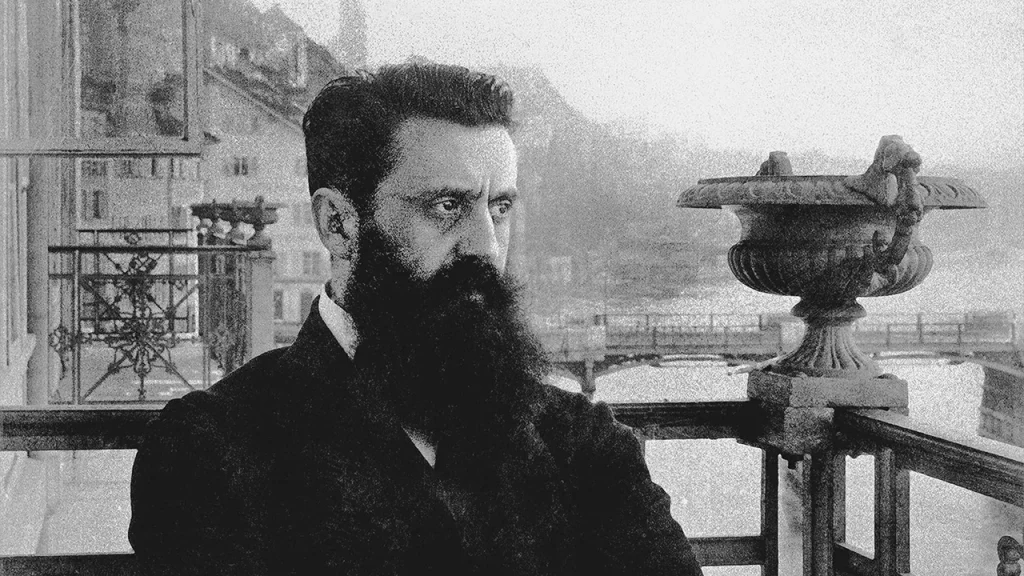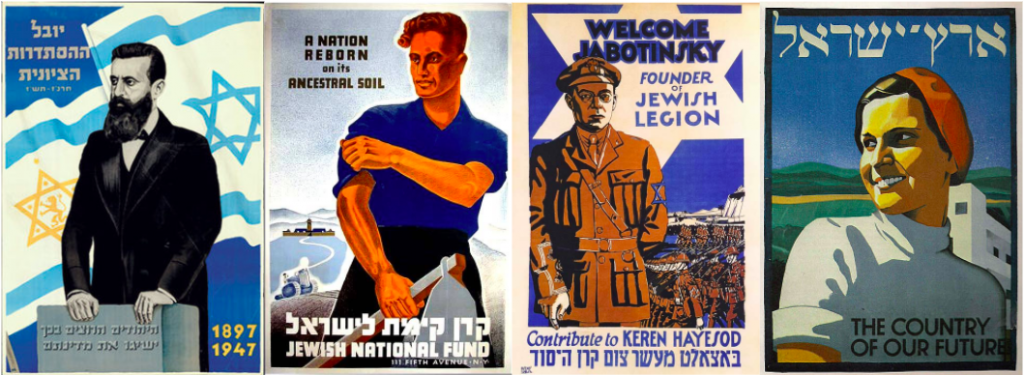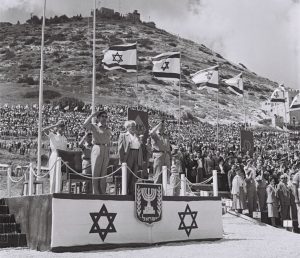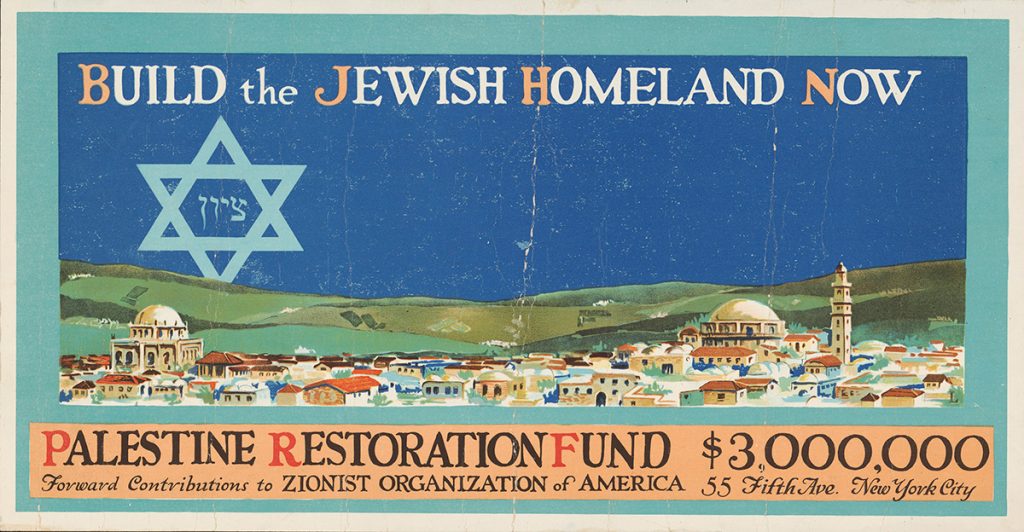Cro Magnon Battles Trilogies.
Zionism is one of the most influential and debated movements of the modern era. Emerging in late 19th century Europe, it sought to provide a solution to the centuries-long “Jewish question”: how to ensure safety, dignity, and national self-determination for Jewish communities facing persistent discrimination and violence. While Zionism achieved its central aim with the creation of the State of Israel in 1948, it remains both celebrated and contested, shaping global politics to this day.
Historical Origins

For centuries, Jewish communities lived in diaspora across Europe, North Africa, and the Middle East. They were often tolerated as minorities but also frequently subjected to persecution, expulsions, and pogroms. In 19th century Europe, nationalism reshaped political identities, giving rise to movements among oppressed groups seeking their own states.
In this climate, early Jewish thinkers such as Moses Hess and Leon Pinsker argued that assimilation into European societies could not solve the problem of anti-Semitism. They proposed that Jews, like other peoples, needed their own homeland.
The most influential figure was Theodor Herzl, an Austrian journalist who in 1896 published Der Judenstaat (“The Jewish State”). Herzl concluded that anti-Semitism was not a temporary phenomenon but a structural one. The solution, he argued, was political sovereignty for Jews in their historic homeland, then known as Palestine. In 1897, Herzl convened the First Zionist Congress in Basel, Switzerland, which formally launched the organized Zionist movement.

Intentions of the Movement
The early Zionists articulated three key goals. First, national sovereignty, establishing a Jewish homeland where Jews could live without fear of persecution. Second, cultural revival, reviving Hebrew as a living language and fostering a distinct Jewish cultural identity. Third, return to the land, encouraging Jewish migration and rebuilding agricultural and urban life in Palestine.
Beyond politics, Zionism was also a movement of renewal. It sought to transform Jewish identity from one shaped by marginalization into one rooted in self-determination and pride.
From Idea to Statehood
The early 20th century saw waves of Jewish immigration to Palestine, driven by pogroms in Eastern Europe and worsening anti-Semitism. Institutions such as the Jewish National Fund began acquiring land to settle Jewish communities.
The movement gained international recognition with the Balfour Declaration of 1917, in which Britain, then ruling Palestine, expressed support for “a national home for the Jewish people.” However, this promise also sowed seeds of conflict, as it clashed with the aspirations of the Arab population living in the same territory.
The Holocaust during World War II added urgency. Six million Jews were murdered, demonstrating the catastrophic consequences of statelessness. After the war, global sympathy and political support for Zionism grew. In 1947, the United Nations voted to partition Palestine into Jewish and Arab states. On May 14, 1948, the State of Israel was declared.

Achievements of Zionism
From a political perspective, Zionism succeeded in its central mission: the creation of a Jewish state. This achievement transformed Jewish identity worldwide. Among its most notable accomplishments:
-
The establishment of Israel gave Jews sovereignty for the first time in nearly two millennia
-
Hebrew was revived as a spoken national language, becoming central to Israeli society
-
For many Jews, Israel became a refuge against future persecution
-
In less than a century, Israel developed into a modern state with significant achievements in science, technology, and culture
Criticisms and Controversies
Despite its achievements, Zionism has always been controversial. Critics, particularly among Palestinians and the broader Arab world, argue that Zionism came at the expense of the indigenous population of Palestine.
The creation of Israel in 1948 was accompanied by the Nakba, or “catastrophe,” during which an estimated 700,000 Palestinians fled or were expelled from their homes. For Palestinians, Zionism is often seen not as liberation but as colonization and dispossession.
Other critiques include the perception that Zionism privileges Jewish identity over others in Israel and the occupied territories, undermining equality. The expansion of Israeli settlements in the West Bank is viewed as a continuation of Zionist expansionism, obstructing peace efforts. Some also argue that Zionism is closely tied to Western colonialism, while its supporters defend it as a legitimate expression of Jewish self-determination.
Even within Jewish communities, there is debate. Some secular Jews see Zionism as essential for survival, while certain ultra-Orthodox groups oppose it on theological grounds, arguing that a Jewish state should not exist until the coming of the Messiah.

Why Zionism Still Has Followers Today
Despite the controversies, Zionism continues to have strong support worldwide. Several reasons explain its resilience. For many Jews, the existence of Israel is proof that centuries of statelessness and persecution have ended. Zionism also fostered not only a state but a cultural and linguistic rebirth. Rising anti-Semitism in parts of the world reinforces the belief that a Jewish state remains essential. Many Jews view Israel as the fulfillment of ancestral and biblical ties. For Jewish communities abroad, Israel remains a focal point of identity and solidarity.
Conclusion
Zionism began as a response to vulnerability, aiming to provide the Jewish people with safety, sovereignty, and dignity in their ancestral homeland. It achieved its central goal in 1948 with the creation of Israel, but it also generated a conflict that remains unresolved.
For supporters, Zionism represents liberation and survival. For opponents, it symbolizes displacement and injustice. More than a century after its birth, Zionism continues to shape political realities, ignite fierce debates, and inspire loyalty among its adherents.
Whether praised as a movement of genius or criticized as a project of exclusion, Zionism remains one of the defining forces of modern history, and its legacy is far from settled.
Here’s a timeline of Zionism’s history in English, showing the major periods and events from the late 19th century to today.
| Period | Key Events | Actors / Figures | Intentions and Impacts |
|---|---|---|---|
| Late 19th century (1880–1900) | – Rising antisemitism in Europe (pogroms in Russia, Dreyfus Affair in France).- Publication of The Jewish State (1896) by Theodor Herzl.- First Zionist Congress in Basel (1897). | Theodor Herzl, Leon Pinsker. | To create a political and territorial solution to the “Jewish Question” through the foundation of a Jewish state. |
| Early 20th century (1900–1917) | – Successive Zionist Congresses.- Development of Jewish agricultural colonies in Palestine (then part of the Ottoman Empire). | Chaim Weizmann, David Ben-Gurion (later). | To prepare concrete settlement and strengthen Jewish national identity. |
| 1917–1939 | – Balfour Declaration (1917): Britain supports a “national home for the Jewish people” in Palestine.- British Mandate in Palestine (1920–1948).- Growing Jewish immigration, rising tensions with Arab populations. | Chaim Weizmann, Haganah (Jewish paramilitary). | To consolidate a Jewish home in Palestine and gain international legitimacy. |
| World War II (1939–1945) | – Holocaust: extermination of 6 million Jews in Europe.- Clandestine Jewish immigration to Palestine despite British restrictions. | Jewish resistance, Zionist movements. | The Holocaust dramatically reinforced the urgency of a Jewish state. |
| 1947–1949 | – UN Partition Plan (1947).- Proclamation of the State of Israel (May 14, 1948).- 1948–49 Arab-Israeli War. | David Ben-Gurion (first Prime Minister). | Fulfillment of the Zionist project: official creation of Israel. |
| 1950–1970 | – Law of Return (1950): automatic citizenship for any Jewish immigrant to Israel.- Wars with Arab states (1956, 1967, 1973). | Levi Eshkol, Golda Meir, Moshe Dayan. | Strengthening defense and territorial consolidation. |
| 1980–2000 | Ongoing Israeli-Palestinian conflict.- Rise of religious Zionism (settlement expansion in the West Bank). Oslo Accords (1993). | Yitzhak Rabin, Shimon Peres, Ariel Sharon. | Tensions between secular Zionism (democratic state) and religious Zionism (biblical state). |
| 21st century | Palestinian Intifadas (2000, 2005).- Expansion of settlements.- Growing recognition of Israel by Arab states (Abraham Accords, 2020). | Benjamin Netanyahu, religious-nationalist movements. | Zionism continues to evolve: for some, it remains a project of national survival; for others, it has become an expansionist ideology. |



